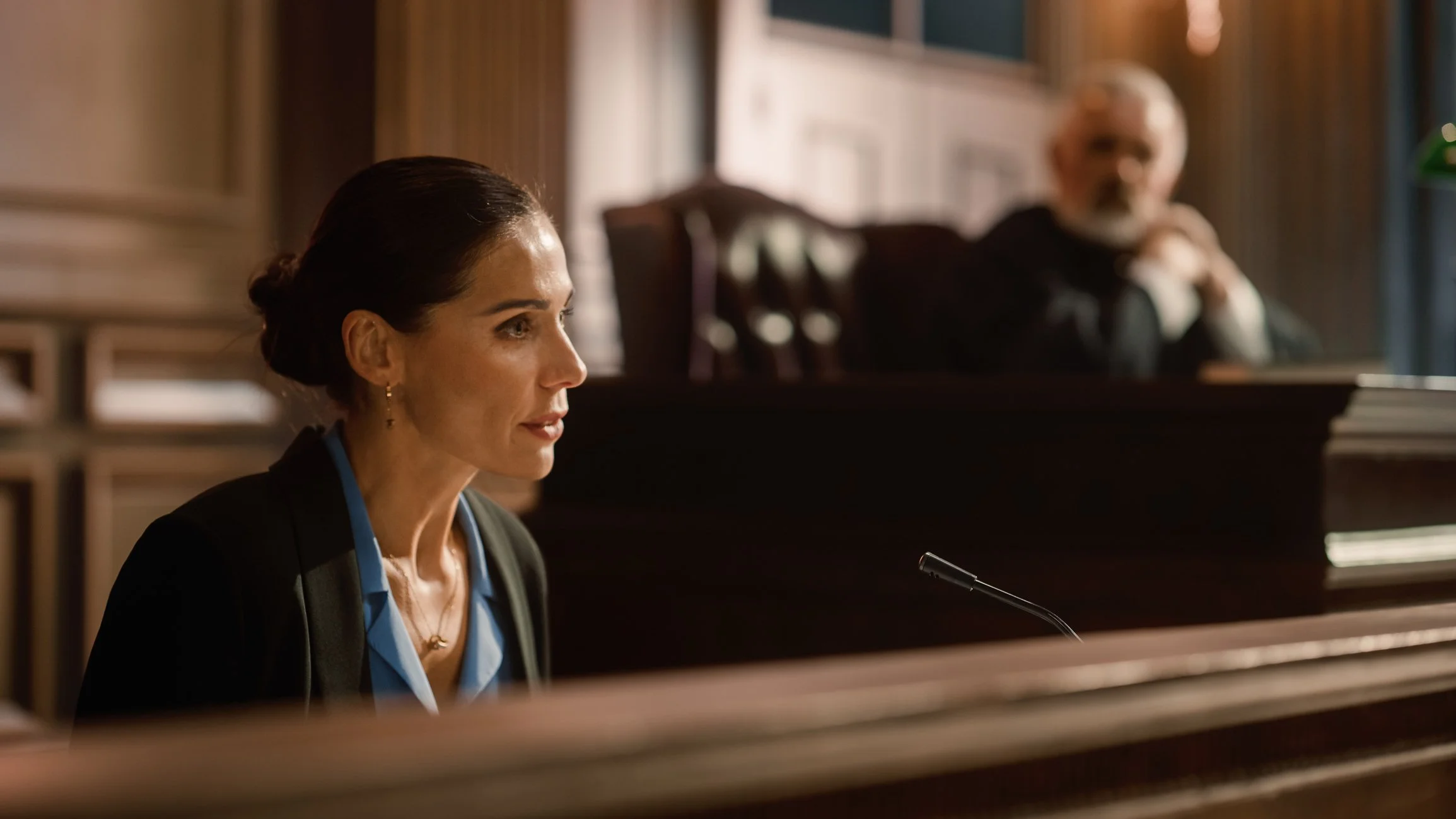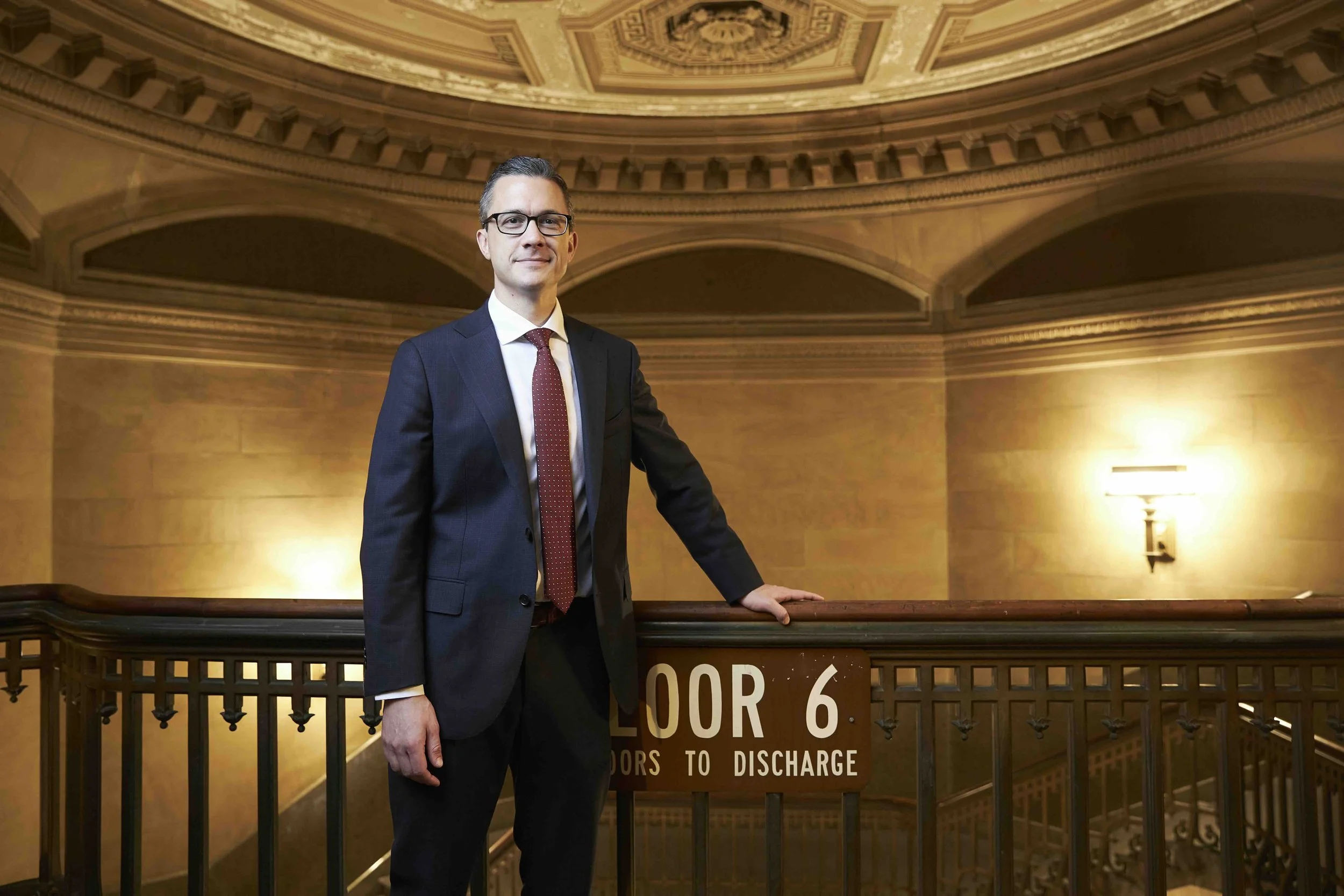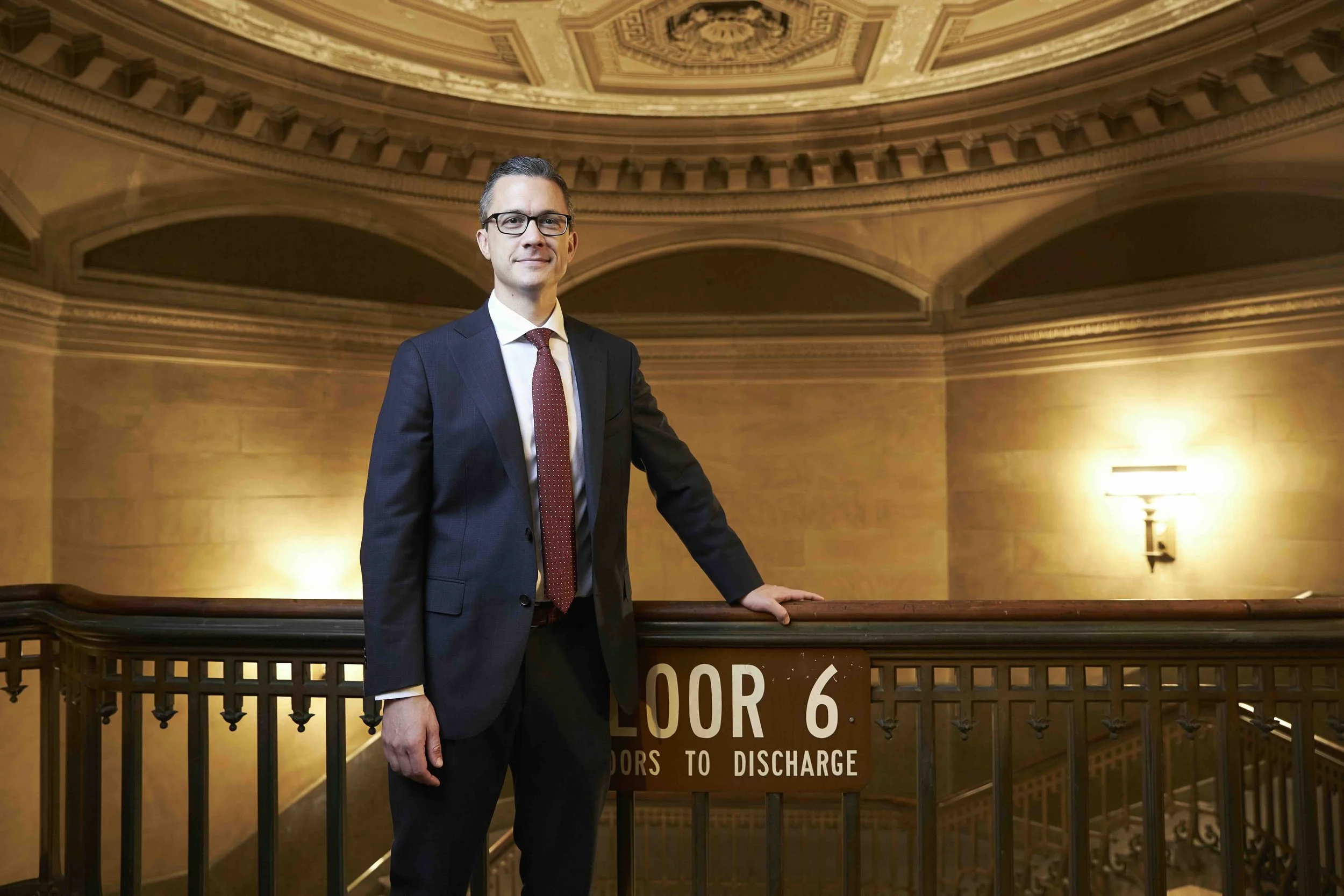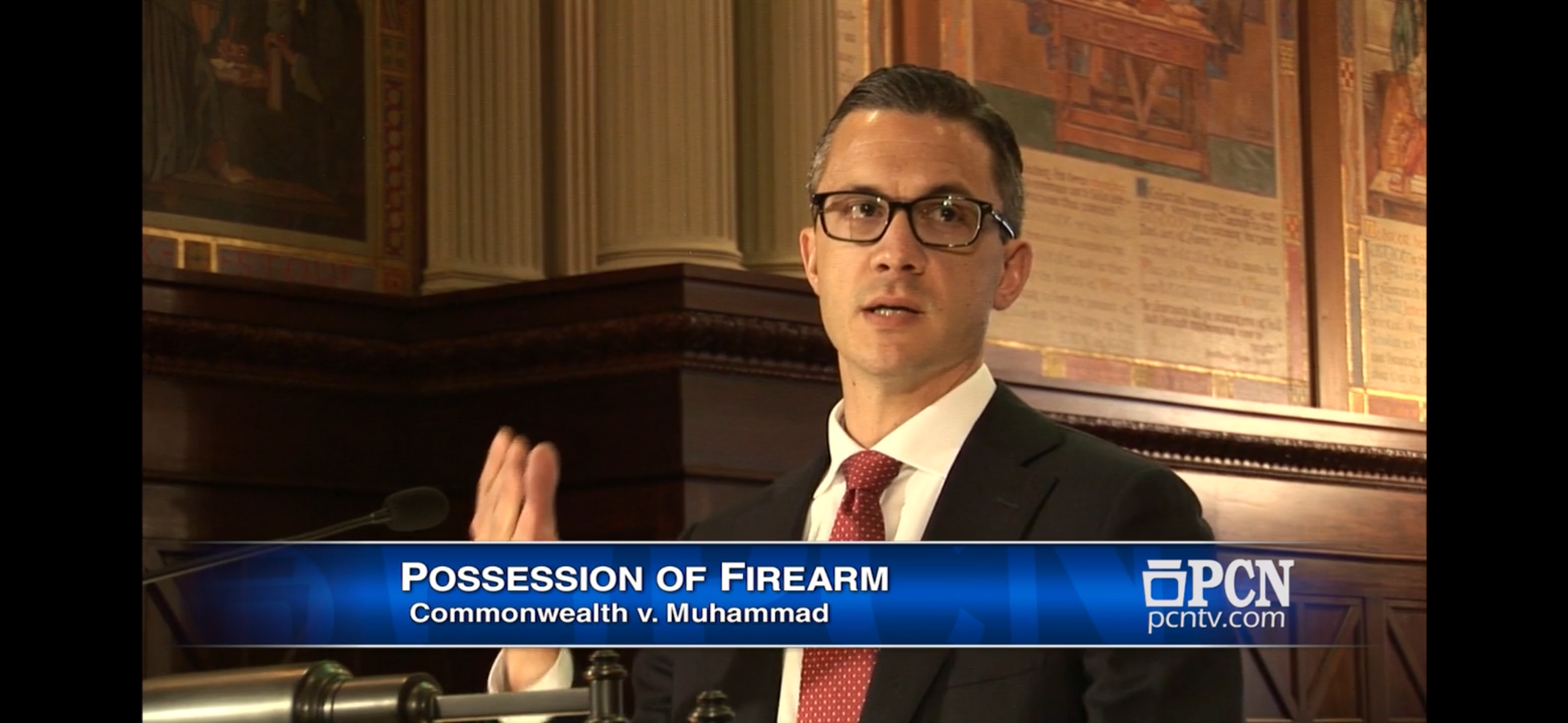
Philadelphia Criminal Defense Blog
PA Supreme Court: Trial Court May Not Consolidate Separate Sexual Assault Cases Based Solely on “Similar” Allegations, and Rape Kits Are Testimonial Under the Confrontation Clause
Criminal Defense Lawyer Zak T. Goldstein, Esquire
The Pennsylvania Supreme Court has decided the case of Commonwealth v. Walker, holding that the trial court abused its discretion when it consolidated three separately-charged CODIS hit rape cases for a joint trial under the common plan, scheme, or design exception to the rule against propensity evidence.
The Court also held that the admission of rape kit reports without testimony from the nurse examiners who actually prepared them violated the defendant's constitutional right to confrontation. This is a landmark decision that significantly tightens the standard for when the prosecution may try separate offenses together and provides important new protections for defendants in sexual assault cases.
The Facts of Commonwealth v. Walker
In July of 2019, the defendant was arrested and charged with the rape of three different women on three separate occasions — P.C. in January of 2011, T.A. in December of 2014, and B.H. in January of 2015. Each complainant underwent a sexual assault examination after the attack, and DNA from the perpetrator was recovered and uploaded to the Combined DNA Index System (CODIS). In December of 2018, a CODIS search revealed that the male DNA samples from all three victims matched, and that DNA profile was later linked to Walker.
In each case, the defendant met the victim, a stranger, on a public street in Philadelphia, convinced her to follow him to a secluded area, and then sexually assaulted her. However, the specific details of each assault varied significantly. In one case, the perpetrator used a knife; in another, he punched the victim in the face; in the third, he struck the victim with a tire iron. He robbed only one of the three victims. One rape occurred near midnight while the other two occurred during the late morning. Each assault took place in a different Philadelphia neighborhood.
The Commonwealth moved to consolidate all three cases for a joint trial, arguing that the evidence of each assault would be admissible at a trial for the others because the assaults shared sufficient similarities to establish a common plan, scheme, or design. Despite the defendant’s objection, the trial court granted the Commonwealth's motion.
Prior to trial, the defendant also filed a motion in limine seeking to preclude the Commonwealth from introducing the rape kit reports prepared by the sexual assault nurse examiners at the Philadelphia Sexual Assault Response Center (PSARC) for two of the three victims. The Commonwealth acknowledged that the nurses who actually performed the examinations no longer worked at PSARC. Instead, the prosecution planned to introduce the reports through the testimony of PSARC's nurse manager and clinical director who did not personally conduct any of the examinations. The trial court denied the defendnat’s motion.
At trial, the defendant was convicted on numerous charges including rape, involuntary deviate sexual intercourse, and sexual assault. He was sentenced to an aggregate of 28 to 56 years' imprisonment and classified as a Tier III sex offender with lifetime registration under SORNA. The Superior Court affirmed, and the Supreme Court granted allowance of appeal.
The Supreme Court's Ruling on Consolidation
The Pennsylvania Supreme Court reversed, finding that the trial court abused its discretion in consolidating the three cases. Under Pennsylvania Rule of Criminal Procedure 582, separate offenses may be tried together only if the evidence of each offense would be admissible in a separate trial for the other. The key question was therefore whether evidence of the other rapes would have been admissible under the common plan, scheme, or design exception to Pennsylvania Rule of Evidence 404(b), which generally bars the prosecution from introducing evidence of a defendant's other bad acts to show criminal propensity.
Critically, the Court took the opportunity to reshape the law on this issue. Over the years, Pennsylvania courts had applied an increasingly diluted version of the common plan, scheme, or design exception. What started as a narrow exception, requiring either a true overarching plan linking crimes together or a modus operandi so distinctive as to be a signature, had devolved into a vague “logical connection” test that merely required “sufficient similarities” between the crimes. The Court recognized that this relaxed standard effectively gutted Rule 404(b)’s core protection against propensity evidence.
Writing for the majority, Justice McCaffery abrogated the “logical connection” test and returned to the original two-pronged framework from Shaffner v. Commonwealth, 72 Pa. 60 (1872). Going forward, the Commonwealth may consolidate separately-charged offenses under the common plan, scheme, or design exception only where it can establish either: (1) the offenses constitute “signature crimes,” meaning the facts are so unique and distinctive that they must have been committed by the same perpetrator; or (2) the offenses were linked to achieve a common goal, meaning the bad acts are part of an integrated plan to accomplish a specific objective.
Applying this newly clarified standard to the defendant’s case, the Court found that neither exception was satisfied. First, the three rapes did not qualify as signature crimes. While all three involved stranger assaults, the specific details varied considerably. The perpetrator used different weapons (or none at all), initiated contact differently, and committed the assaults in different neighborhoods at different times. These were, as the Court put it, characteristics typical of any stranger rape case, not a unique signature. Second, there was no evidence of a preconceived plan linking the three crimes together to achieve a common goal. The evidence simply showed that the perpetrator raped women when presented with the opportunity to do so. A general desire to commit the same type of crime is not the kind of common plan or scheme that Rule 404(b) contemplates.
The Court also emphasized an important procedural point. The decision to consolidate cases is made pretrial, before the defendant has revealed any defense strategy. The Commonwealth cannot justify consolidation based on its anticipatory rebuttal of a defense, such as a consent defense, that the defendant has not yet raised. A defendant has no duty to present evidence and may instead rely on the presumption of innocence and the Commonwealth's burden of proof.
The Supreme Court's Ruling on the Rape Kit Reports
The Supreme Court also ruled in the defendant’s favor on the Confrontation Clause issue. The Sixth Amendment and Article I, Section 9 of the Pennsylvania Constitution guarantee criminal defendants the right to confront the witnesses against them. In a line of cases including Crawford v. Washington, Melendez-Diaz v. Massachusetts, Bullcoming v. New Mexico, and most recently Smith v. Arizona, the United States Supreme Court has made clear that the Confrontation Clause applies to forensic reports and that the prosecution may not introduce testimonial hearsay, including forensic reports, without providing the defendant an opportunity to cross-examine the person who actually prepared the report.
The Pennsylvania Supreme Court held that rape kit reports are testimonial in nature. The reports are formally titled “Sexual Assault Forensic Examination Forms,” and the very word “forensic” signals their evidentiary purpose. The reports were created primarily to establish past events and collect evidence relevant to a potential criminal prosecution, not simply to provide medical treatment. The Court also noted that Pennsylvania statute explicitly defines a rape kit as a “sexual assault evidence collection kit,” and the law requires health care facilities to notify law enforcement of the alleged assault.
Because the rape kit reports were testimonial and were offered for their truth at trial, the Confrontation Clause required the testimony of the nurse examiners who actually prepared them. The testimony of PSARC’s clinical director, who did not personally perform any of the examinations, was not an adequate substitute. The Court rejected the Commonwealth's argument that the reports were admissible under the medical records or business records exceptions to the hearsay rule. Hearsay exceptions cannot override the Confrontation Clause. When an out-of-court statement constitutes testimonial hearsay, it may not be admitted at trial unless the defendant had the opportunity to cross-examine the declarant, regardless of whether the statement would otherwise qualify as a hearsay exception.
The Takeaway
Commonwealth v. Walker is one of the most significant Pennsylvania Supreme Court decisions in recent years for criminal defendants. On the consolidation issue, the Court meaningfully strengthened the protections of Rule 404(b) by rejecting the watered-down “logical connection” test and demanding that the Commonwealth meet a real standard before it can try separate cases together. This matters because consolidation is enormously prejudicial. A jury hearing about multiple allegations is far more likely to convict on all of them than a jury considering each charge independently. Going forward, the prosecution will need to show either a true signature crime or a genuine common plan linking the offenses together, rather than simply pointing to broad similarities between different cases.
On the Confrontation Clause issue, the decision provides a clear rule for sexual assault cases: the prosecution must produce the actual nurse examiner who prepared the rape kit report, or it cannot introduce the report. This prevents the Commonwealth from relying on a “surrogate witness” who simply reads the absent nurse’s report into the record.
Defense attorneys handling sexual assault cases, cases involving motions to consolidate, or cases involving the admission of forensic reports should take note of this decision and use it to protect their clients’ rights.
Facing Criminal Charges? We Can Help.
Goldstein Mehta LLC Criminal Defense
If you are facing criminal charges or under investigation by the police, we can help. We have successfully defended thousands of clients against criminal charges in courts throughout Pennsylvania and New Jersey. We have successfully obtained full acquittals and dismissals in cases involving Conspiracy, Aggravated Assault, Rape, Violations of the Uniform Firearms Act, and First-Degree Murder. Our award-winning Philadelphia criminal defense lawyers offer a free criminal defense strategy session to any potential client. Call 267-225-2545 to speak with an experienced and understanding defense attorney today.
PA Supreme Court Fails to Reach Decision on Whether Search Warrant Required for Google’s Search Records
Criminal Lawyer Zak Goldstein
On December 16, 2025, the Pennsylvania Supreme Court issued a fractured decision in Commonwealth v. Kurtz, addressing a cutting-edge digital privacy question: do you have a reasonable expectation of privacy in the terms you type into a Google search bar?
The Court’s answer was “no”—at least for general, unprotected searches. However, because the decision was reached by a plurality (meaning a majority of justices did not agree on a single legal reasoning), it is not binding, and the ruling leaves significant questions unanswered regarding other types of digital data, particularly Internet Service Provider (ISP) records and IP address subscriber information.
Commonwealth v. Kurtz: The “Reverse Keyword” Warrant
In Kurtz, police were investigating a violent home invasion rape but had no DNA match or suspect. Investigators obtained a “reverse keyword search warrant” compelling Google to identify any IP addresses that had searched for the victim’s home address prior to the crime. Google identified an IP address associated with the defendant, leading to additional investigation, an eventual DNA match, and his conviction for rape in this case and other unsolved cases.
The defendant challenged the warrant, arguing he had a privacy interest in his search history and that the warrant provided no reason to believe that the perpetrator conducted a Google search at all let alone for the victim’s address. The trial court rejected this claim, and the defendant appealed. The Superior Court rejected the claim, too, finding that the defendant did not have a reasonable expectation of privacy in the records maintained by Google and that the police had obtained a legitimate search warrant even if he did. The defendant petitioned the Supreme Court for review, and the Pennsylvania Supreme Court agreed to hear the case. That Court, however, failed to reach a decision - three justices concluded that he had no reasonable expectation of privacy in the search records, three concluded that the warrant was fine and declined to address the REOP decision, and one justice would have granted the motion to suppress.
Accordingly, the Court affirmed the defendant’s conviction as it would have required four justices to vote to overturn it. In support of upholding the conviction, Justice Wecht authored an Opinion Announcing the Judgment of the Court (OAJC) which reasoned that the defendant did not have a reasonable expectation of privacy in the information and that investigators did not have to obtain a warrant at all because:
Voluntary Disclosure: By typing a query into Google, the user voluntarily discloses that information to a third party, meaning the user does not make an attempt to keep the information private.
Notice: Google’s privacy policy explicitly warns users that it collects search queries and shares them with law enforcement.
Lack of Necessity: The Court noted that using Google is a choice, not a necessity; users can use other search engines, libraries, or physical maps. They can also take steps to shield their identities and increase their privacy.
Accordingly, the defendant had no reasonable expectation of privacy in the search results.
Why Kurtz Is Not the Final Word
While Kurtz is a significant ruling for search history and the Superior Court’s ruling stands, it is not a total defeat for digital privacy rights in Pennsylvania for two key reasons:
1. It Is a Plurality Opinion: Crucially, the main opinion in Kurtz was joined by only three of the seven justices. When a court decides a case without a majority opinion, the holding is generally limited to the specific result of that case, and the legal reasoning is not fully binding precedent for future cases. This means the broad language about the third-party doctrine may not apply automatically to different factual scenarios or even similar scenarios.
2. It Is Limited to "Unprotected" Searches: The Court repeatedly stressed that its ruling applied only to “general, unprotected internet searches.” The justices expressly stated they were not deciding the privacy rights of users who utilize Virtual Private Networks (VPNs), private browsing modes, or encrypted browsers. Moreover, the courts have required legitimate search warrants where investigators seek to obtain bank records, phone records, and location data.
The Next Battleground: IP Addresses and ISP Records
The Kurtz decision creates a sharp distinction that defense attorneys can use in cases involving IP addresses and ISP subscriber records (the information “behind” the IP address, such as the customer's name and address).
In Kurtz, the Court emphasized that users have a choice: they can use Google, or they can use a privacy-focused competitor (like DuckDuckGo) or offline resources . However, this logic does not apply to IP addresses. Kurtz dealt with whether the police could obtain a list of IP addresses that had searched for a particular address. It did not address whether the police could obtain the information behind the resulting IP addresses without a search warrant, and in Pennsylvania, police often use administrative subpoenas to obtain that information rather than warrants. Whether they can do that under the Pennsylvania Constitution remains questionable for the following reasons:
Necessity vs. Convenience: You cannot use the internet without an IP address. It is technologically impossible. Unlike choosing a search engine, assigning an IP address is an involuntary condition of internet access, similar to how bank records or phone numbers are necessary to participate in modern life. Pennsylvania courts have long held that citizens do have privacy rights in bank records (Commonwealth v. DeJohn) and phone records (Commonwealth v. Melilli) because they are essential services.
The “Information Behind the IP”: Kurtz dealt with the content of a search communicated to Google. ISP inquiries deal with the identity of the user maintained by the internet provider. This information is generated automatically by the ISP, not voluntarily typed out by the user.
The Takeaway
At least for now, Commonwealth v. Kurtz establishes that if you type a search into Google without privacy protections, you cannot expect that search to remain private from police. However, because the decision relies heavily on the “voluntary” nature of using Google and Google’s explicit privacy warnings, it may not extend to the mandatory, automatic records generated by simply connecting to the internet via an ISP.
If you are facing charges based on digital evidence, IP address identification, or administrative subpoenas, the specific technical details of your case matter. The law is evolving rapidly, and a nuanced defense strategy is essential.
Facing criminal charges? We can help.
Goldstein Mehta LLC Criminal Defense
If you are under investigation or facing charges involving digital evidence, search warrants, or administrative subpoenas, we can help. We have successfully defended thousands of clients against criminal charges in courts throughout Pennsylvania and New Jersey. Our award-winning Philadelphia criminal defense lawyers offer a free criminal defense strategy session to any potential client. Call 267-225-2545 to speak with an experienced and understanding defense attorney today.
En Banc Pennsylvania Superior Court Clarifies That Probation May Run Concurrently with Incarceration
Criminal Defense Lawyer Zak T. Goldstein, Esquire
The Pennsylvania Superior Court has issued a significant en banc decision in the case of Commonwealth v. Jennings, resolving a recent conflict in Pennsylvania sentencing law. Overruling several recent panel decisions, the Court held that trial judges are in fact permitted to sentence defendants to terms of probation that run concurrently with terms of incarceration, including state prison sentences.
This decision restores the sentencing flexibility that defense attorneys and judges have long utilized and clarifies the plain language of the Sentencing Code.
The Facts of the Case
In Commonwealth v. Jennings, the defendant was convicted of attempted statutory sexual assault, unlawful contact with a minor, and related offenses after engaging in sexually explicit conversations with an undercover detective posing as a 14-year-old girl.
Due to prior convictions for rape and involuntary deviate sexual intercourse (IDSI) from 1989, the defendant faced mandatory minimum sentencing provisions which required the judge to impose a sentence of at least 25 to 50 years in prison. The trial court went well above that and ultimately sentenced him to an aggregate term of 50 to 100 years of incarceration. Relevant to this appeal, for the charge of criminal use of a communication facility (CUCF), the judge imposed a seven-year term of probation to run concurrently with the state prison sentence.
The defendant appealed, arguing that the sentence was illegal. He relied on recent Superior Court decisions which had suggested that probation cannot be served while a defendant is incarcerated because probation is, by definition, a "less restrictive" alternative to jail meant for rehabilitation in the community and that it is not even possible to comply with the conditions of probation while in custody. For example, an inmate in a state prison cannot remain in the county of conviction or report to the county probation officer.
The Legal Issue: Can Probation and Prison Run Together?
The primary issue before the en banc panel was whether a sentencing court has the authority to order a term of probation to be served at the same time as a term of total confinement.
This question arose because of a string of recent unpublished panel opinions (such as Commonwealth v. Qawiee, Commonwealth v. Patel, and Commonwealth v. Bowers) which had vacated such sentences as illegal. Those panels reasoned that under cases like Commonwealth v. Allshouse and Commonwealth v. Basinger, probation was incompatible with incarceration.
The Superior Court’s Decision
The Superior Court rejected the reasoning of those recent panels and affirmed the legality of concurrent probation. The Court based its decision on the plain text of 42 Pa.C.S.A. § 9721(a), which outlines the sentencing alternatives available to a judge (such as probation, guilt without penalty, partial confinement, total confinement, and fines). The statute explicitly states that the court “may impose them consecutively or concurrently.”
The Court held:
Therefore, by its plain language, Section 9721(a) permits trial courts to impose concurrent terms of probation and total confinement. . . . To the extent that [prior cases] suggest that the Sentencing Code provides no authority for imposing probation concurrently with a term of total confinement, we disapprove of their rationales.
The Court explained that concurrent probation still serves a purpose. Even while incarcerated, a concurrent probationary tail can serve as a deterrent. If the defendant commits a new crime or misconduct in prison, that probation could theoretically be revoked. More importantly, the Court emphasized that statutory text supersedes policy arguments about whether concurrent supervision is “practical.” In other words, the policy justifications only come into play for an ambiguous statute, and here, the Court concluded that the statute was not ambiguous. A trial court may impose consecutive or concurrent probationary and prison sentence.
Secondary Issue: Notice for Mandatory Minimums
The defendant also challenged his mandatory minimum sentence on the grounds that the Commonwealth failed to include the triggering facts (his prior convictions) in the criminal information, which is the formal charging document in Pennsylvania.
The Superior Court rejected this argument, as well. Relying on Pennsylvania Supreme Court precedent in Commonwealth v. Aponte, the Court held that prior convictions are a “sentencing factor,” not an element of the crime. Therefore, the Commonwealth is not required to list them in the criminal information. Providing reasonable notice of the intention to seek the mandatory minimum after conviction but before sentencing is sufficient to satisfy due process, although once a defendant has been convicted, it is too late for them to do anything about a mandatory minimum. A rule that requires notice prior to trial would be far better, but the appellate courts have not required that kind of notice.
Key Takeaways for Criminal Defendants
This decision is legally significant for several reasons:
Sentencing Flexibility: Judges often use concurrent probation as a way to close out a less serious count without adding a “tail” that keeps a defendant under state supervision for decades after their release. Jennings confirms this practice is legal.
Structuring Pleas: Defense attorneys can once again confidently negotiate plea deals that involve concurrent probation without fear that an appellate court will sua sponte vacate the sentence as illegal. Agreeing to a lengthy probationary sentence may in some cases result in less jail time for the defendant.
Mandatory Minimums: Unfortunately, the case serves as a reminder that the Commonwealth does not need to show its hand regarding mandatory minimums in the initial charging documents, provided they give notice before sentencing.
Facing criminal charges? We can help.
Goldstein Mehta LLC Criminal Defense Attorneys
If you are facing criminal charges or under investigation by the police, we can help. We have successfully defended thousands of clients against criminal charges in courts throughout Pennsylvania and New Jersey. We have successfully obtained full acquittals in cases involving charges such as Conspiracy, Aggravated Assault, Rape, and Murder. We have also won criminal appeals and PCRAs in state and federal court. Our award-winning Philadelphia criminal defense lawyers offer a free criminal defense strategy session to any potential client. Call 267-225-2545 to speak with an experienced and understanding defense attorney today.
Attorney Goldstein Wins Federal Suppression Motion in Electronic Contraband Case
Criminal Defense Lawyer Zak T. Goldstein, Esquire
Philadelphia criminal defense attorney Zak T. Goldstein, Esquire, of Goldstein Mehta LLC recently secured a major victory in federal court when a judge granted his motion to suppress all evidence in a serious federal criminal case. The ruling, issued by the United States District Court for the Eastern District of Pennsylvania, resulted in the exclusion of every item seized by investigators and effectively ended the government’s case.
The client had been charged in federal court with offenses involving the alleged possession and production of unlawful digital material. The prosecution’s entire case depended on evidence taken from a series of search warrants that allowed agents to seize and examine the client’s computers, phones, and other electronic devices.
Attorney Goldstein challenged the legality of those searches in a “four corners” motion, arguing that the warrants were unconstitutional because they were not supported by probable cause. In particular, he demonstrated that the affidavits failed to draw any meaningful connection between the conduct being investigated and the belief that illegal material would be found on the client’s electronic devices. Instead, the government relied on a boilerplate assumption that people accused of sexual misconduct are likely to possess such material on their electronics. Attorney Goldstein argued that this “profile-based” reasoning violated long-standing Third Circuit precedent, which requires a clear factual nexus between the alleged crime and the evidence sought.
The federal judge agreed, ruling that the affidavits were too speculative to support probable cause and that the warrants were so deficient that the “good faith” exception did not apply. The court found that no reasonable officer could have believed that the affidavits established a sufficient basis to search the client’s home and devices. Because the subsequent search warrants were based on evidence obtained from the initial unconstitutional searches, all of the evidence in the case was suppressed.
This outcome is a tremendous win and a relatively rare event in federal criminal litigation. Federal suppression motions are extremely difficult to win. Courts often defer to the government’s investigative process, and they routinely apply a good faith exception where, as here, investigators obtain a search warrant even if the warrant itself turns out to be lacking. Attorney Goldstein’s success demonstrates the value of a deep understanding of constitutional law and the willingness to challenge law enforcement overreach through careful, methodical, and aggressive litigation.
Facing federal criminal charges? We can help.
Criminal Lawyer Zak T. Goldstein, Esquire
If you are facing criminal charges or under investigation by the police, we can help. We have successfully defended thousands of clients against criminal charges in courts throughout Pennsylvania and New Jersey. We have successfully obtained full acquittals and dismissals in cases involving charges such as Conspiracy, Aggravated Assault, Rape, Violations of the Uniform Firearms Act, and First-Degree Murder. We have also won criminal appeals and PCRAs in state and federal court, including the successful direct appeal of a first-degree murder conviction and the exoneration of a client who spent 33 years in prison for a murder he did not commit. Our award-winning Philadelphia criminal defense lawyers offer a free criminal defense strategy session to any potential client, and we frequently spot issues and defenses that other lawyers miss. Call 267-225-2545 to speak with an experienced and understanding defense attorney today.












